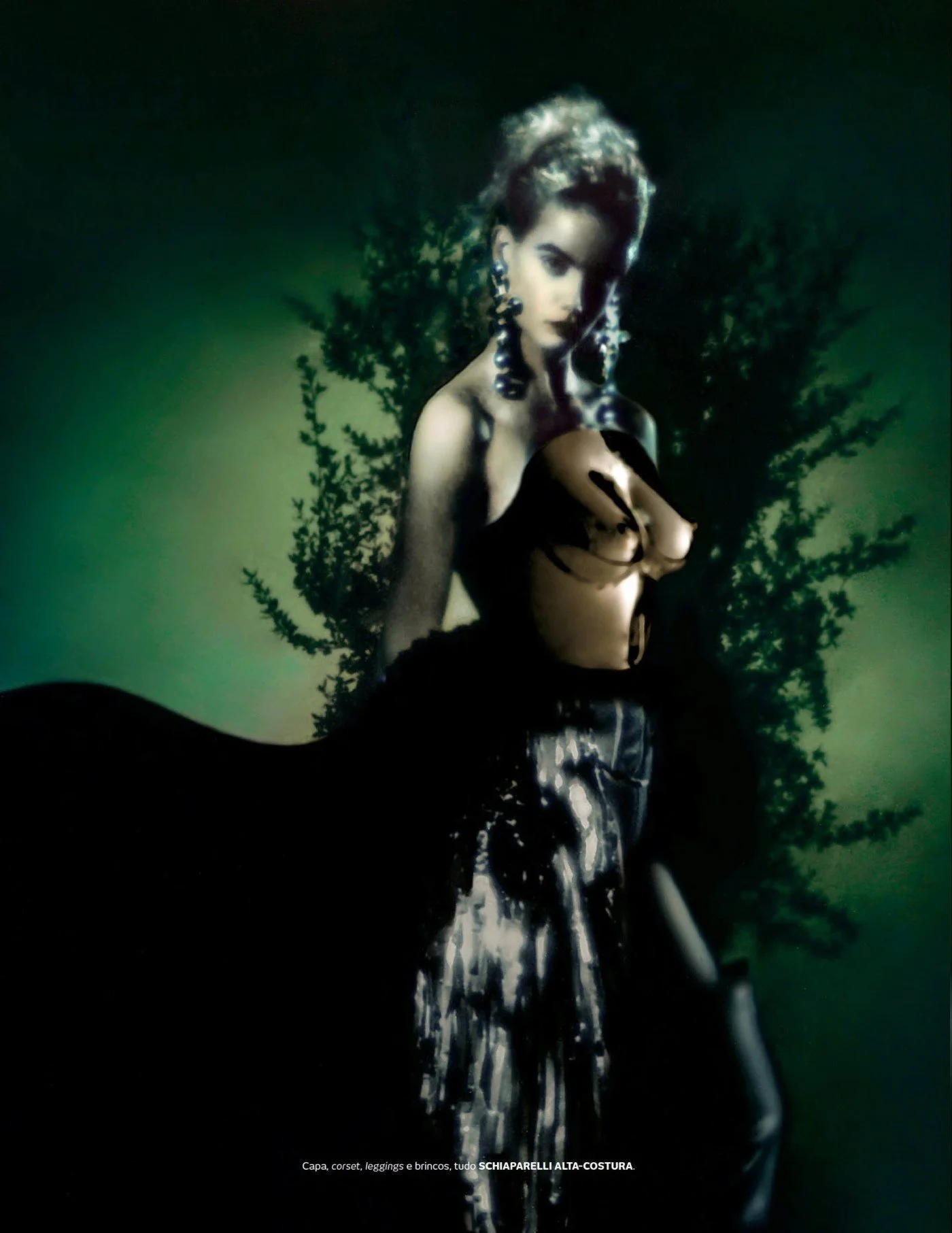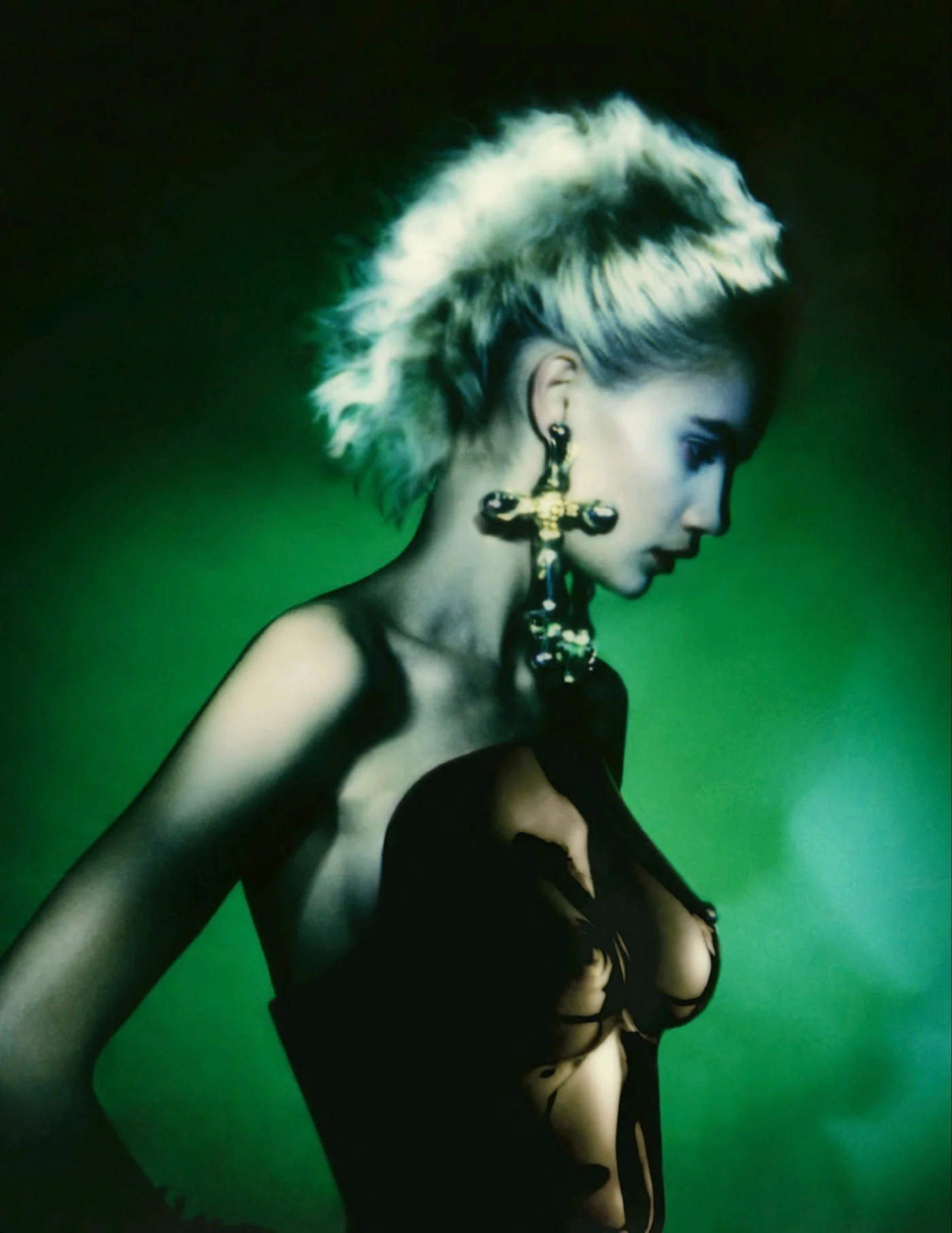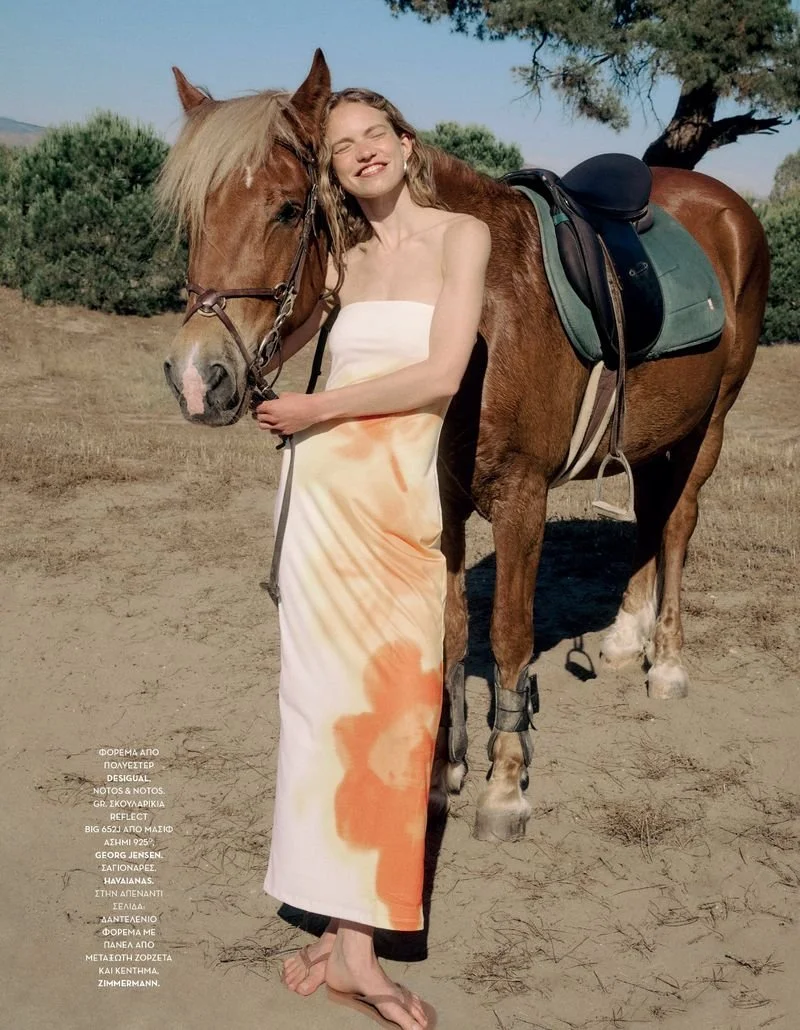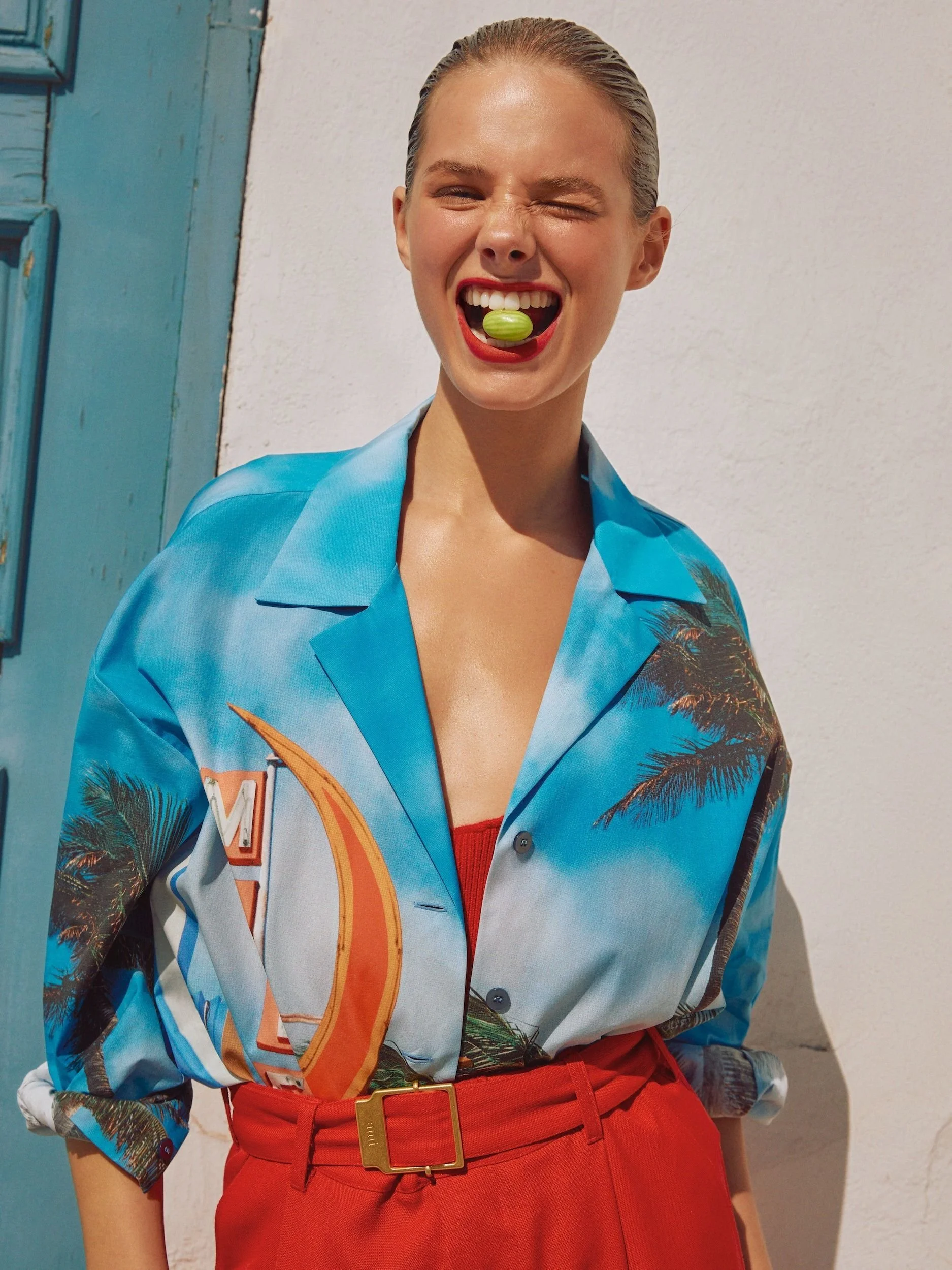Vogue Portugal's Intellectual 'Sete Magnificas' by Nicola Delorme with Nina Marker
/Vogue Portugal's Intellectual 'Sete Magnificas' by Nicola Delorme with Nina Marker AOC Fashion
Model Nina Marker is styled by Joana Dacheville in ‘Sete Magnificas’, a beautiful fashion story with a very intellectual foundation. It’s so AOC!!! Photographer Nicola Delorme [IG] is behind the lens for Vogue Portugal December 2021/January 2022./ Hair by Nicolas Philippon; makeup by Caroline Fenouil
I have much to say about these translated words, as they reflect my philosophy about the desire of modern humans to triumph over others — and to triumph over death.
Fashion plays a role in this absurd pursuit of triumph, as Vogue Portugal notes. One of the most profound books that I’ve read — as a Jungian — is Ernest Becker’s book ‘Denial of Death’.
The premise of this book is addressed in Vogue Portugal’s commentary as it explores the rise of Western civilization and our attachment to possessions that we don’t need in ‘Sete Magnificas’. You can enjoy it as a beautiful fashion story, but it’s intended meaning and desire for dialogue goes far deeper.
Via Google translator, Vogue Portugal writes:
The year has four seasons, but our time on Earth has seven: the introduction to life, which is genesis; childhood, narcissist, adolescence, that centaur of transformation, adulthood, adulthood, which comes as a claim to our own power; motherhood, tree of life and knowledge; old age, which contains all possible wisdom; and, finally, the epilogue -- death.
The human being, aware of his mortality, is consumed by two conflicts: being and nothingness. Denial and acceptance. Fight or surrender. Because humanity is nothing more than the generosity of time. It is not by chance that the painting Saturn devouring a un hijo, by Francisco de Goya, shows Cronos (or Saturn, in Roman mythology). god of time, to eliminate his offspring for fear of being dethroned.
An allegory about the passage of time where it is implicit that, however inexorable this defeat may be, man will always try to fight his dark star: death. That is why human vanity appears, in everything we do, as the promise of the eternal return of a triumphant self, which never fails to overcome itself.
































